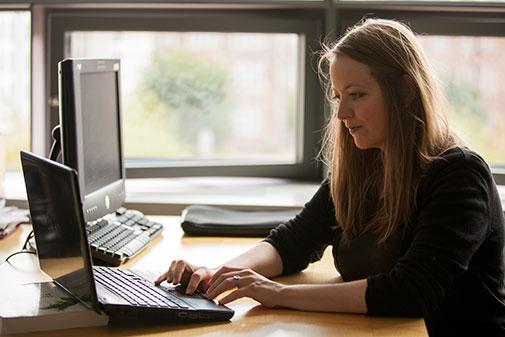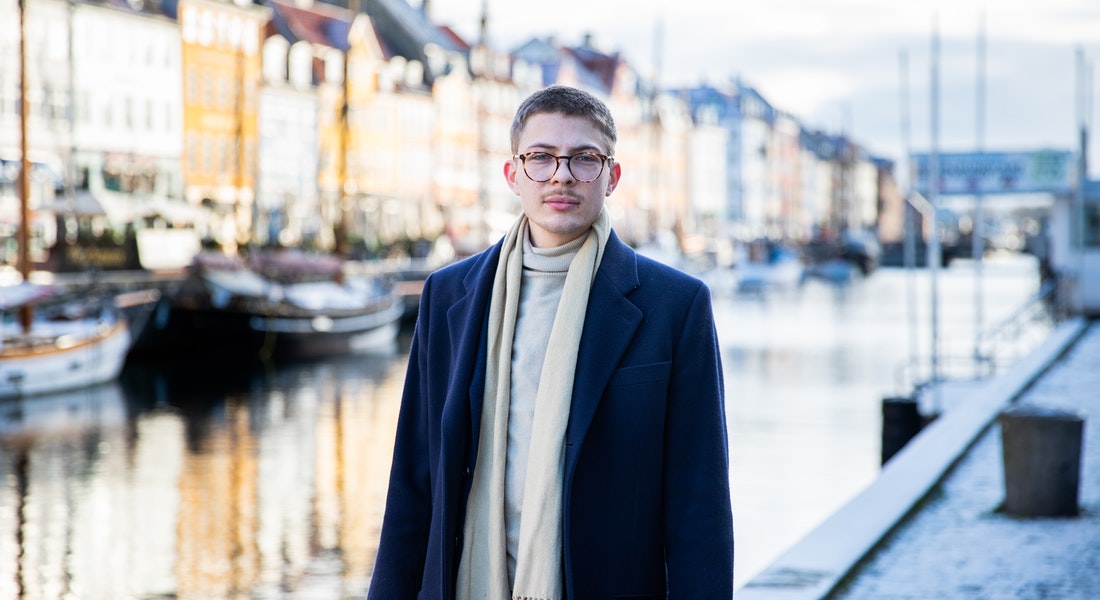Find helpful information here
Living in Copenhagen
Copenhagen is a great city to live in. Especially for students.
Here you will find a great student culture and exciting career opportunities if you want to pursue a career in Copenhagen - both during and after your studies. Find out more about the Danish capital - both academically and socially and hear what a handful of international students say about living in Copenhagen.
Copenhagen - a popular city for students
Do you dream of living in Copenhagen? The green, cycle-friendly Danish capital is consistently ranked one of the top cities to live in, especially for students. In fact, Copenhagen has been awarded as ’The Most Livable City’ in 2021 according to this year’s Monocle’s Liveable Cities Index. Good education options, cosy, student-friendly cafés, great local transportation and a safe environment make Copenhagen a popular choice for both Danish and international students.
Endless cultural possibilities in Copenhagen
Moving is a big decision whether you are considering staying in Denmark for one semester or two years to complete a master’s degree programme. Choosing the right programme and university is probably your first priority, but what about the surroundings, the culture and the language? Studying abroad in Denmark is much more than just academia. Below, you can learn more about Copenhagen and Denmark.
One of the best student cities in the world
Copenhagen ranks among the best student cities in the world – on many parameters.
- Copenhagen is the world’s best city to visit (Lonely Planet, 2019).
- Copenhagen is the most liveable city for European expatriates (ECA International, 2019).
- Copenhagen is one of the happiest student cities in the world (Topuniversities.com, 2020).
- Denmark is the happiest place to study abroad in 2021 (Masterspotal, 2021).
- Denmark is the world’s least corrupt country (Corruption Perception Index, 2019).
- Denmark is the second happiest nation in the world (UN World Happiness Report, 2019).
- Denmark ranks second in the EU on the gender equality index (the Global Gender Gap Index, 2020).
A capital with plenty of action
- all year around
In Eastern Denmark lies the capital where the University of Copenhagen is situated. Approximately 718,000 people live in the City of Copenhagen. Zooming out, 1,3 million people live in the Copenhagen metropolitan area. Generally, students appreciate that Copenhagen is friendly, peaceful, safe and easy to get around in.
Copenhagen is a capital with plenty of action all year round. Festive events are abundant: the University’s Friday Bars, nightclubs downtown, private parties, and numerous festivals and other cultural events can make your stay colourful. The University even has its own Festival.
Copenhagen is buzzing with tourists and locals all year round. Especially in spring and summer, the city is full of tourists – hanging out in the city parks, urban spaces, at outdoor cafés, the city beaches and street food markets.
In 2019, Lonely Planet named Copenhagen the best city in the world to visit. We hope you will stay for more than a visit, though.

Copenhagen is a multicultural and beautiful city".
"There is more to life than working"
Ran from South Korea shares her experiences with Danish family culture, fashion in Copenhagen and her student job at the University of Copenhagen. Ran also talks about how to get around in Copenhagen quickly and safely by bicycle.
"Danes have been very welcoming to me"
Samuel from Nigeria points out his favourite summer spot in Copenhagen and shares his thoughts on opportunities in Denmark, what he learned that will be useful in his future career and why Danes are not as reserved as rumour has it.
Climate and geography
Compared to its neighbours, Denmark is a quite small country. It takes less than three hours to go by train between Copenhagen and the second-largest city, Aarhus in Jutland. With approx. 7,000 km of coastline you are never far away from the sea in Denmark – especially in Copenhagen, where you can easily take a plunge, either in the harbour’s clean waters or at the grand beach Amager Strand.
The climate in Denmark is generally mild. Winters are cold (0 to 5 degrees Celcius) but beautiful - often but not always with snow. Copenhagen is famous for its Christmas markets, and in both autumn and wintertime you can always find an indoor concert other indoor events. Springtime brings people outside where they soak up the first sharp rays of sunshine. The temperatures vary. In general, it is between 10 and 24 degrees Celsius.
Summers change a lot, ranging from windy and rainy periods to heatwaves that bring crowds to the country’s many beaches and in general 20-25 degrees Celcius.
Autumn is the chance for mushroom hunting in forests and lots of indoor ‘hygge’ (‘cosiness’) and between 10 and 20 degrees Celsius.
However, in Copenhagen, it is always easy to find cosy cafés with student-friendly prices - both indoor and outdoor.
Public transport
Busses and the Metro run all over the city and the S-train connects Greater Copenhagen with the city centre. This also applies to the four UCPH campuses. Find out how easy it is to find public transport in Greater Copenhagen at Rejseplanen.dk (English version)
Biking in Copenhagen
Jump on your bike and enjoy cruising the world’s most cycle-friendly city. You will be joining 62% of the city’s residents who ride a bike daily to work or school – only 9% drive. Consequently, all kinds of people bike: students, professionals, parents with toddlers, children, teenagers, tourists.
The municipality of Copenhagen has made massive investments in designated cycle paths, traffic lights that prioritise cyclists, new bridges for pedestrians and cyclists and bicycle superhighway routes to residential suburbs.
Read about the Copenhagen bike culture on Visit Copenhagen's website.
The Copenhagen neighbourhood guide
Do you want to know more about Copenhagen? Get to know the lively and cosmopolitan capital city of Denmark


Areas in Copenhagen
Just outside the city centre, you have Østerbro, Vesterbro, Nørrebro, Frederiksberg and Amager. Visit Copenhagen has a great introduction to the various districts in Copenhagen.
Most students opt for housing in the central parts of Copenhagen such as Nørrebro, Østerbro, Vesterbro, Frederiksberg, East Amager, and West Amager. However, public transport can often bring you from a residential suburb to your campus quite quickly (as do the new bicycle superhighways).
It is often easier to find a place to live in areas such as the North West part, Vanløse, Brønshøj, Kastrup, Hvidovre, Søborg and Kastrup. It is not quite as central as most of the other popular areas in Copenhagen. But if you rent or buy a bike it is easy to get there.
Communal dining in Copenhagen
Dining has a central place in Danish culture, and in Copenhagen you can often find private food clubs and cheap communal dining (fællesspisning in Danish) to join, especially at student halls of residence.
